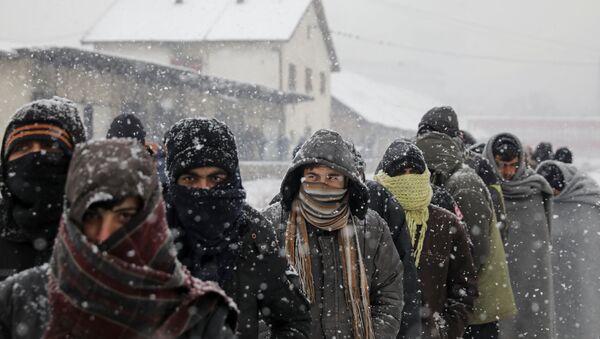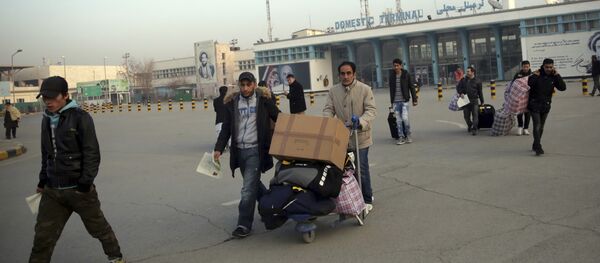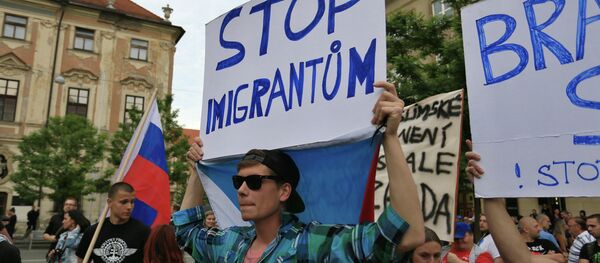Immigration can be very useful to a host country and have a positive impact on its economy, however Europe seems to be unable to reap the benefits of the immigration process.
Radio Sputnik has discussed what might have gone wrong with the EU's immigration policies with Dr. Tommaso Frattini, Assistant Professor at the Department of Economics of the University of Milan and a Research Fellow at the Centre for Research and Analysis of Migration at University College London.
"It is quite obvious that migration may have a positive economic impact on receiving countries. By increasing a labor supply in a country, migration increases the size of its economy and thus increases GDP (gross domestic product)," he told Sputnik.
However, he further explained, those who benefit most from immigration are those individuals in a host country who have skills that the incoming immigrants do not possess.
Whereas people who lose, he said, are those who have the same skills as the arriving migrants. Therefore if there is an inflow of unskilled migrants into a country, these will be unskilled individuals within that country who will compete in the labor market with the arriving migrants and may potentially suffer negative consequences.
Whereas, on the other hand, highly-skilled individuals in the host country will benefit.
"However once you take into account that immigrants and natives are different not only in the level of qualifications that they have but also in their backgrounds, they have what the economy calls 'different comparative advantages' and then the economy may benefit from immigration." Dr. Frattini said.
As long as migration is a choice, Dr. Frattini explained, then you will have people who move their skills to countries where they might be used more productively. What has been on the rise in recent years is that people who have certain skills, move their skills, their human capital from countries where they can use it less productively to countries where they can use it more productively. This type of migration contributes to the economic advantage of a country, he explained.
However various research suggests that very often immigrants, upon arrival in a host country, are downgraded in the labor market; they are employed in occupations that they are overqualified for. This means that they can't make full use of their human capital, which is a waste of resources, he said.
There is a lack of policies targeted at integrating immigrants in many European countries, so the migrants are left to deal with the market, he explained.
Dr. Frattini noted that in order to reap benefits of the immigration process, Europe's migration policy framework should facilitate integration.
He further explained what he meant.
"However if I know that potentially I can stay in the county as much as I want, it will increase my incentives to learn the language of the host county, to make friends with the citizens of the country and to learn the culture of the country I move to."
"If you put limitations on the people wishing to settle down in a certain country, this may harm the success of the integration of immigrants in that country," he concluded.
Have you heard the news? Sign up to our Telegram channel and we'll keep you up to speed!




